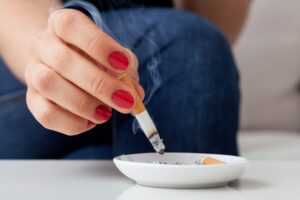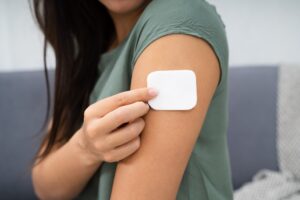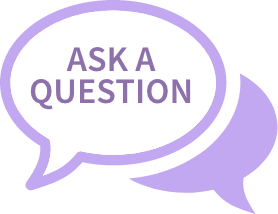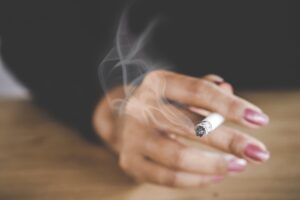Risks of Smoking Before or After Breast Surgery
Written By Joe Gryskiewicz, MD, FACS
If you decide to have plastic surgery, your surgeon will likely tell you to quit smoking. Consider this valuable advice. However, you shouldn’t look for a nicotine substitute.
Smoking might seem seductive and harmless initially, but don’t let it fool you. Any product containing this nicotine, such as tobacco, pipes, cigarettes, snuff, patches, nicotine gum, vapes and even e-cigarettes, is dangerous for your health.
Minnesota Plastic Surgeons Dr Joe Gryskiewicz can perform the most advanced breast surgery for you if you are ready to agree to quit smoking before and after the surgery.
Smoking before or after surgery will lead to sub-optimal aesthetic results. There are many risks associated with smoking when having plastic surgery. Let’s see what these risks are.
Risks Associated with Smoking Before and After Breast Surgery
Let’s discuss the main risks associated with smoking and breast surgery.
-
Smoking and Anesthesia
The first risk of smoking before or after plastic surgery is related to anesthesia. When smoking, people may develop all sorts of lung problems. For example, they can get pneumonia or bronchitis.
When people smoke a lot, they develop a higher risk of lung infections and incision infections, especially if they get breast implants.
Moreover, smokers tend to cough more often. And when they cough, the pressure in their veins increases. In return, this might cause bleeding after the surgery. In other words, coughing after breast implant surgery can be painful and lead to a difficult recovery.
-
Problems with Wound Healing
 Smoking can also have a negative impact on wound healing. Nicotine causes blood vessels to constrict, and this limits the blood flow to the surrounding area. There are many ways in which smoking can affect the healing process, but wound dehiscence or delayed wound healing are the most important.
Smoking can also have a negative impact on wound healing. Nicotine causes blood vessels to constrict, and this limits the blood flow to the surrounding area. There are many ways in which smoking can affect the healing process, but wound dehiscence or delayed wound healing are the most important.Wound dehiscence is related to the opening of the incisions caused by an improper oxygen supply in the blood. The tissues need oxygenated blood to repair after the injury that occurred during the surgery. When they don’t receive nutrients and enough oxygen, tissues might die. Skin necrosis is a complication that could occur in smokers after getting breast surgery. Keep in mind that wound dehiscence or delayed wound healing could also lead to bad scarring, something we all want to avoid when it comes to plastic surgery.
If you have a breast surgery, you should not smoke for six weeks before surgery. After surgery, you should avoid smoking for six weeks. You can’t use other products containing nicotine, either. In other words, quit smoking and nicotine altogether.
-
Developing Cancer
Smoking for many years can cause all sorts of health problems. For example, people should know that smoking increases the risk of developing lung cancer and cancer of the esophagus, mouth, tongue, lips, stomach and even bladder.
Cigarettes influence blood vessels and the heart, increasing cancer risk. Moreover, with time, arteries become narrow and hard. Then the blood supply no longer gets to the kidneys, heart, and lungs, as well as the lower extremities. When the narrowing worsens, the blood supply that reaches those areas becomes critically low. This can lead to strokes, heart attacks, or kidney failure. In severe situations, amputation of the toes, feet or the lower extremity may be necessary.
Risk of Skin Necrosis Associated with Smoking Before and After Breast Surgery
Dr. Joe recommends patients to avoid smoking before and after breast surgery to eliminate the risk of skin necrosis or death of the tissues. If you are getting breast implants with a periareloar approach, the incisions are around the nipple and areola. Skin necrosis due to lack of proper oxygenation can even lead to nipple loss, especially in mastopexy or breast reduction where the nipple blood supply depends on blood flow from the chest wall.
Plastic surgeons and other medical practitioners also refer to tissue death as tissue necrosis. As a smoker, you want to avoid this when you undergo breast surgery.
When there’s adequate blood flow to the area treated during the procedure, the recovery should occur quickly and efficiently. And this is possible only after quitting smoking.
Carbon monoxide or nicotine can reduce the blood flow to the operated tissue, so when you undergo breast surgery, you might be confronted with nipple loss or bad scarring.
Some of the other problems caused by nicotine before and after plastic surgery are:
- Infections
- Increased healing time
- Fat necrosis that leads to hard lumps
- Scarring
- Fatal blood clots
- Pain
- Permanent small vessel damage
- Losing the implant
- Strokes, heart attacks, blood clots, or pneumonia
What to Do Before and After Breast Surgery?
Dr. Joe will give you clear recommendations regarding smoking before and after your breast surgery. This way, you will reduce your chances of developing blood clots and reduce your chances of developing a severe complication.
At the same time, don’t forget that smoking increases breast surgery complications rate by 40 to 60%. At the same time, it might impact the effects of the anesthesia administered too.
Also, don’t forget that smoking can affect your cardiovascular health in many ways before or after surgery. For example, the procedure increases blood pressure levels and constricts blood vessels.
Breast Surgery Complications
There are over 4,000 toxins and chemicals that you inhale when you smoke. You should also know that nicotine is lethal in high dosages. Many other substances cause the body to suffer bad repercussions after breast surgery. These substances are hydrogen cyanide, nitric oxide, and carbon monoxide.
These are very harmful toxins with bad effects on the body. Also, smokers can develop medical conditions like lung and heart disease, strokes, high blood pressure, and cancer.
The use of nicotine affects their anesthetic and medication dosage intake. In addition, it’s harder to control pain if smoking before or after breast surgery.
How Does Smoking Impact Breast Surgery Healing?
 According to studies, smoking delays healing and increases the risk of wound infection. Smoking also leads to necrosis, interfering with the scarring. Here are some examples of how smoking causes complications:
According to studies, smoking delays healing and increases the risk of wound infection. Smoking also leads to necrosis, interfering with the scarring. Here are some examples of how smoking causes complications:
- Smoking reduces the oxygen supply to the wound. Wounds heal more quickly when they receive enough oxygen. But smoking prevents the oxygen from getting to the tissue, leading to ischemia or hypoxia.
- The nicotine present in tobacco causes blood vessels to become narrower and shrink. Therefore, less blood gets to the wound and the skin. Besides, nicotine increases blood pressure levels and heart rate.
In other words, nicotine stresses the heart and can cause damage. This leads to the body becoming deprived of oxygen.
Research shows that smoking can also impair fibroblasts’ function. Fibroblasts are the cells that repair the wound and form the scar. In other words, if you smoke, your breast surgery scar will likely be more obvious.
And there’s more. Smoking also impairs immunity. When you smoke, your immune system can become weaker. For example, when you undergo plastic surgery, you are more likely to have an infected wound. This is because smoking affects the way your wound heals.
Further, smoking also increases the risk of developing blood clots. This is because the blood of smokers may be thicker.
How Can You Quit Smoking Before Surgery?
 It doesn’t matter if you are planning breast surgery or other type of surgery. It’s a good idea for you to quit smoking. This might sound easier to say than to do. However, the symptoms of withdrawing from smoking can be challenging. However, the impact of quitting smoking on health is worth it.
It doesn’t matter if you are planning breast surgery or other type of surgery. It’s a good idea for you to quit smoking. This might sound easier to say than to do. However, the symptoms of withdrawing from smoking can be challenging. However, the impact of quitting smoking on health is worth it.
You will notice changes in stamina a few days after you no longer smoke. The body will return to its normal functions in only ten days, as proven by testing. Quitting smoking is the best thing you can do if you want to avoid the problems related to smoking and breast surgery.
So, if you are a smoker who thinks quitting is tough, you can try some of the most popular methods.
For example, you can call the dedicated phone line, like the SAMHSA’s national help line, that assists smokers in quitting smoking. It doesn’t matter if you call at night or during the day. You can always find someone there to answer you.
You could also try nicotine replacement. Nicotine is an addictive substance present in tobacco. People who withdraw from nicotine can experience weight gain, increased appetite, irritation, stress, and sleep disturbances. However, keep in mind that nicotine products should be avoided before and after surgery.
Further, you could also opt for non-nicotinic drug therapies. For example, you could use Chantix which help you stop smoking.
FAQs about Smoking and Breast Surgery
Can therapy help me quit smoking before plastic surgery?
In its many forms, therapy can help if you want to quit smoking. For example, you could opt for group therapy, psychotherapy, and other self-help programs that have helped smokers quit nicotine in the past. Suppose you are struggling with quitting smoking after plastic surgery. In that case, you should talk honestly with your chosen plastic surgeon. Keeping smoking a secret from your plastic surgeon can lead to catastrophic results. Therefore, make sure you discuss this issue during your initial consultation.
Is it really necessary to quit smoking before plastic surgery?
Smoking before and after breast surgery puts you at high risk of developing all sorts of conditions and unwanted side effects. Suppose you want to avoid all these problems. In that case, you should talk to your plastic surgeon about quitting smoking. Keep in mind, the most common complication from breast implants is capsular contracture, which has been correlated with smoking.
Should I tell my plastic surgeon that I am smoking?
You need to be honest about your smoking habits and give all the information on how much you are smoking. Try any of the methods mentioned above, and you will discover that you can undergo breast surgery without any problem.
Read more about Breast Surgery at Twin Cities Cosmetic Surgery
- Quick Recovery® Breast Augmentation
- Dual Plane Breast Augmentation
- Fat Transfer to the Breasts
- Breast Augmentation Gallery



